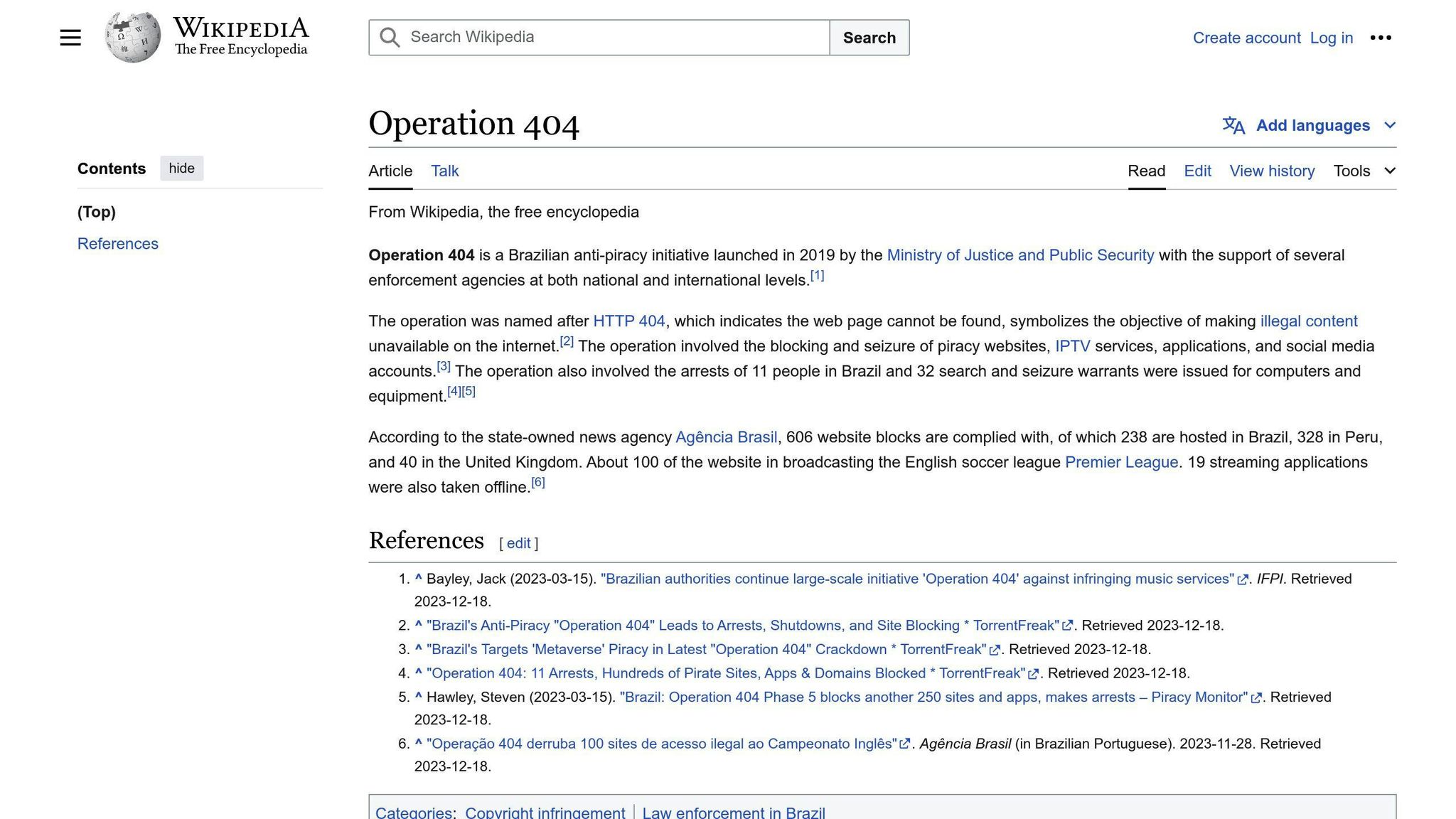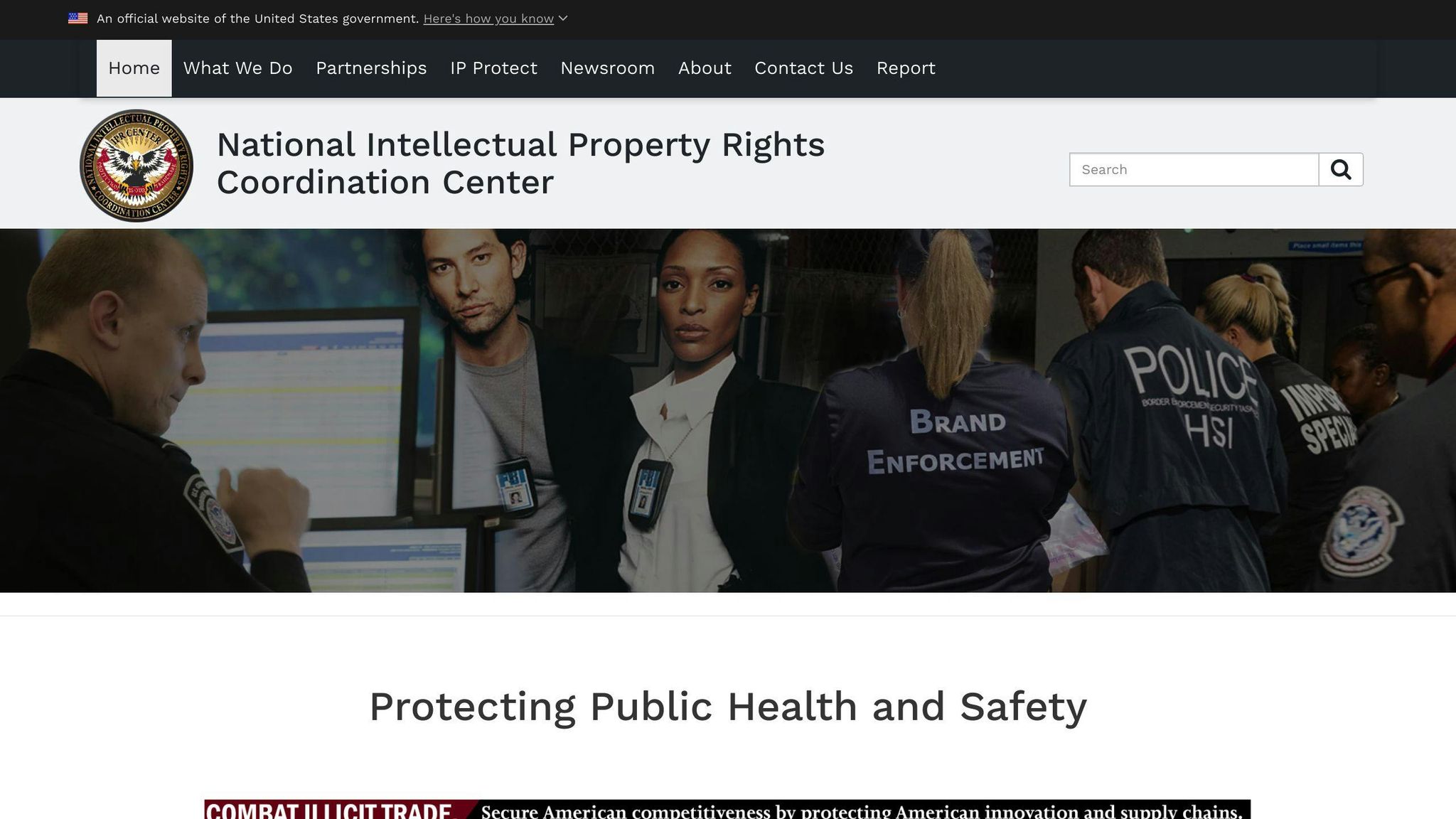Digital piracy is the illegal copying or sharing of copyrighted digital content like music, movies, and software over the internet. It harms creative industries by causing financial losses and stealing intellectual property. To combat this global issue, anti-piracy groups partner with law enforcement agencies to:
- Protect Intellectual Property Rights: By pooling resources, sharing intelligence, and conducting joint operations, they can disrupt pirate networks and ensure creators are fairly compensated for their work.
- Tackle Enforcement Challenges: Piracy is a global problem, making it difficult for individual groups to tackle alone. Collaboration enables coordinated efforts across jurisdictions to target pirates more effectively.
Key Collaboration Models:
| Model | Description |
|---|---|
| Formal Agreements | Outline terms for information sharing, joint investigations, and operations between law enforcement and industry groups. |
| Public-Private Partnerships | Bring together law enforcement, industry associations, and private companies to share resources and expertise. |
| International Coalitions | Unite law enforcement, industry groups, and governments from different countries for global coordination and intelligence sharing. |
Successful examples of these partnerships include:
- Operation 404: A global operation involving Brazilian law enforcement and international industry groups that led to 12 arrests and 200 illegal sites being shut down.
- IPR Center and MPA Partnership: A public-private partnership between a U.S. federal law enforcement agency and the Motion Picture Association to identify, disrupt, and prosecute pirate operations.
- IPC3 Operations: The Intellectual Property Crime Coordinated Coalition‘s international efforts to shut down illegal websites and arrest pirates through cooperation and information sharing.
By working together, law enforcement and industry groups can develop effective strategies to protect intellectual property rights, disrupt piracy operations, and create a safer digital environment.
Related video from YouTube
The Global Piracy Problem
Money Lost to Piracy
Piracy causes huge money losses every year. A report says the world economy loses at least $29 billion in revenue due to online piracy. This loss hurts creators of digital content and has a wider impact on the whole economy. Piracy also leads to job losses, as industries that rely on intellectual property may have to downsize or close.
Protecting Creator Rights
Protecting intellectual property rights is key in the fight against piracy. These rights give creators the exclusive right to profit from their work. But piracy violates these rights, letting others use and share copyrighted material without permission. Anti-piracy measures like digital rights management can help protect intellectual property and prevent piracy.
Enforcement Difficulties
Enforcing anti-piracy laws is challenging, especially online. Piracy is a global issue, and individual groups may lack resources or jurisdiction to tackle it alone. Pirates often operate where intellectual property laws are weak, making them hard to track and prosecute. International cooperation between law enforcement, governments, and anti-piracy groups is crucial to combat piracy effectively.
| Piracy Harms | Anti-Piracy Benefits |
|---|---|
| Huge financial losses | Protects creator rights |
| Job losses in creative industries | Prevents unauthorized use |
| Violates intellectual property rights | Enables legal enforcement |
Why Work Together?
Pooling Resources
Working together allows law enforcement agencies and industry groups to combine their resources. This includes:
- Financial resources: Funding for investigations, technology, and personnel
- Human resources: Skilled investigators, analysts, and subject matter experts
- Technological resources: Tools for tracking pirates, analyzing data, and securing content
By pooling resources, they can tackle piracy more effectively than working alone.
Sharing Intelligence
Sharing information and data is key to combating piracy. Law enforcement and industry groups can:
- Identify patterns: Spot trends in piracy operations by analyzing shared data
- Track pirates: Trace pirate networks across multiple jurisdictions
- Disrupt operations: Use shared intelligence to target and shut down piracy rings
Exchanging intelligence helps develop better anti-piracy strategies and tactics.
Example: Sharing Pirate Network Data
| Law Enforcement | Industry Groups |
|---|---|
| Provides intelligence on known pirate networks | Offers expertise on content protection measures |
| Shares data on piracy methods and locations | Provides insights on emerging piracy threats |
Simple Ways Law Enforcement and Industry Groups Work Together
Formal Agreements
Law enforcement agencies and industry groups sign formal agreements to work together. These agreements outline how they will:
- Share information and data
- Conduct joint investigations
- Coordinate operations
For example, the International Anti-Counterfeiting Coalition (IACC) has signed agreements with law enforcement worldwide to fight counterfeiting and piracy.
Public-Private Partnerships
Public-private partnerships bring together:
- Law enforcement agencies
- Industry associations
- Private companies
They share resources, expertise, and data to combat piracy. In the U.S., the National Intellectual Property Rights Coordination Center (IPR Center) coordinates these efforts.
International Coalitions
International coalitions unite:
- Law enforcement agencies
- Industry groups
- Governments from different countries
They share intelligence, best practices, and resources to fight piracy globally. The Intellectual Property Crime Coordinated Coalition (IPC3) has dismantled pirate groups and illegal streaming services.
| Collaboration Model | Key Players | Purpose |
|---|---|---|
| Formal Agreements | Law enforcement, industry groups | Outline cooperation terms |
| Public-Private Partnerships | Law enforcement, industry, private companies | Share resources and expertise |
| International Coalitions | Law enforcement, industry, governments | Global coordination and intelligence sharing |
By working together, these groups can develop effective strategies to:
- Disrupt pirate operations
- Protect intellectual property rights
- Promote a safer digital environment
sbb-itb-738ac1e
Keys to Effective Collaboration
Clear Goals and Priorities
Having clear goals and priorities helps everyone work towards the same objectives. By defining what needs to be achieved, partners can focus their efforts and resources on the most critical areas. This prevents duplicate work, ensures a unified approach, and maximizes the impact of collaborative efforts.
Defined Roles
Clearly defining each partner’s role is crucial. It prevents overlaps and enhances efficiency. By outlining responsibilities, partners can focus on their areas of expertise, reducing confusion and increasing productivity. This ensures all aspects are covered, leaving no gaps for pirates to exploit.
Communication Channels
Secure and consistent communication channels facilitate information exchange and coordination. Partners must establish trusted channels to share intelligence, best practices, and resources. This enables quick responses to emerging threats and adaptation to changing circumstances.
Joint Training
Joint training initiatives ensure all partners have the necessary skills and knowledge. By providing training and capacity-building programs, partners can enhance their capabilities, share expertise, and develop a common understanding of threats.
Coordinated Operations
Coordinated raids and operations are critical for disrupting pirate networks and protecting intellectual property rights. By synchronizing efforts, partners can launch simultaneous operations, targeting multiple pirate groups and maximizing impact. This helps create a safer digital environment and sends a strong message that illegal activities will not be tolerated.
| Key Element | Purpose |
|---|---|
| Clear Goals and Priorities | Focus efforts on critical areas, prevent duplication |
| Defined Roles | Enhance efficiency, leverage expertise, cover all aspects |
| Communication Channels | Share intelligence, respond quickly to threats |
| Joint Training | Build capabilities, share knowledge, understand threats |
| Coordinated Operations | Disrupt pirate networks, protect intellectual property |
Overcoming Challenges
Working together to fight piracy can be difficult, but understanding and addressing these issues is key to success. Here, we discuss common obstacles and solutions to overcome them.
Legal Differences
Laws and regulations vary between countries, creating hurdles for international cooperation. Establishing a common legal framework for intellectual property protection allows partners to work together more smoothly. For example, the World Intellectual Property Organization (WIPO) provides a platform for countries to discuss and develop international treaties and agreements.
Funding and Resources
Limited funding and resources can hinder collaborative efforts. To address this, partners can explore:
- Public-private partnerships
- Joint funding initiatives
- Using technology to reduce costs and increase efficiency, such as digital platforms for information sharing and coordination
Data Security and Privacy
Ensuring secure and compliant data sharing is crucial. Partners can:
- Establish secure communication channels
- Implement robust data protection measures like encryption and access controls
- Develop clear guidelines for data handling and sharing
Language and Cultural Barriers
Cultural awareness and language proficiency are essential in international collaborations. Partners can:
| Solution | Purpose |
|---|---|
| Language training | Facilitate effective communication |
| Cultural awareness programs | Ensure all voices are heard and valued |
| Translation tools and interpreters | Bridge language gaps |
Success Stories
Here are some real examples of how law enforcement and industry groups worked together to fight piracy:
Operation 404

In Brazil, Operation 404 led to:
- 12 piracy operators arrested
- 200 illegal sites shut down
This global operation involved:
- Brazilian Ministry of Justice and Public Security
- U.S. Entertainment Software Association
- UK Police Intellectual Property Crime Unit
- Peru’s INDECOPI (intellectual property agency)
- Brazilian film industry regulator ANCINE
- Brazilian telecom agency ANATEL
| Operation 404 |
|---|
| 12 piracy operators arrested |
| 200 illegal sites shut down |
| International coalition of law enforcement and industry groups |
IPR Center and MPA Partnership

The IPR Center (a U.S. federal law enforcement agency) teamed up with the Motion Picture Association (MPA) to:
- Identify and disrupt pirate operations
- Seize illegal goods
- Prosecute pirates
Their public-private partnership shows how working together can combat piracy.
IPC3 Operations
The Intellectual Property Crime Coordinated Coalition (IPC3) has:
- Shut down illegal websites
- Arrested pirates
IPC3’s operations highlight the importance of:
- International cooperation
- Information sharing
- Law enforcement and private sector partnerships
By combining intelligence, resources, and expertise, they can dismantle pirate networks.
These examples demonstrate that collaboration between law enforcement, industry groups, and international organizations is key to:
- Protecting intellectual property rights
- Disrupting piracy operations
- Creating a safer digital environment
Conclusion
Keep Fighting Piracy
The battle against digital piracy is ongoing. As technology advances, pirates find new ways to operate illegally. So law enforcement, industry groups, and international organizations must stay one step ahead. By sharing information, resources, and expertise, we can:
- Disrupt pirate networks
- Protect creator rights
- Create a safer digital space
Get Involved
Want to join the fight against digital piracy? Here are some ways to get involved:
- Explore anti-piracy efforts through groups like:
- International Anti-Counterfeiting Coalition (IACC)
- Motion Picture Association (MPA)
- Report suspected piracy to authorities like:
- U.S. Immigration and Customs Enforcement (ICE)
- Federal Bureau of Investigation (FBI)
Every effort counts in stopping digital piracy. Together, we can make a real difference.
FAQs
Who enforces anti-piracy laws?
Law enforcement agencies, industry groups, and international organizations work together to enforce anti-piracy laws. In the U.S., agencies like:
- Immigration and Customs Enforcement (ICE)
- Federal Bureau of Investigation (FBI)
Play a key role in fighting digital piracy. They partner with groups like:
| Industry Groups | International Organizations |
|---|---|
| International Anti-Counterfeiting Coalition (IACC) | Motion Picture Association (MPA) |
By sharing intelligence, resources, and expertise, they can:
- Intercept piracy networks
- Dismantle criminal organizations
- Arrest those responsible for piracy
This collaborative approach allows them to stay ahead of pirates and protect creators’ rights.

